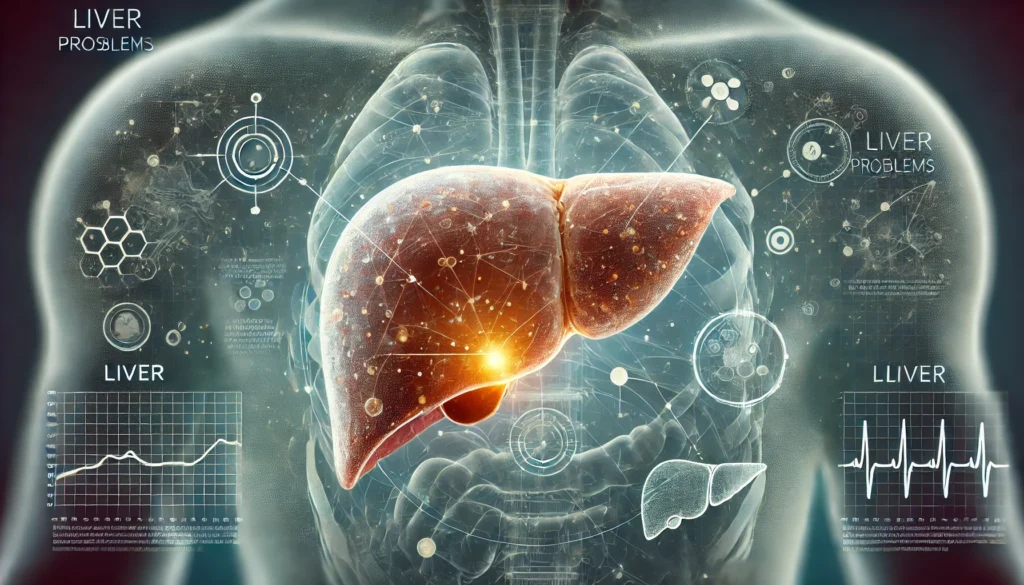Vitamin B3, also called niacin, is an essential nutrient that helps the body do a lot of important things, like make energy, fix DNA, and send messages between cells. Vitamin B3 is one of the eight water-soluble B vitamins that can’t be stored in the body. Getting enough vitamin B3 every day is important for staying healthy. In recent years, Vitamin B3 (Niacin) has become popular as a nootropic supplement because it can make people more alert, help them focus, and improve their thinking. This article aims to give a detailed look at the chemistry and physiology of Vitamin B3, as well as its health benefits, best dosage, side effects, and possible interactions with other substances. We will also talk about how to use Vitamin B3 safely and how it works well with myPEAK DeltaSleep, a product made by myPEAK Supplements.
You May Also Like:
Celiac disease: Description, Causes, and Treatment Protocol
Vitamin E: Benefits, Dosage, Side Effects, Drug Interactions, And Other Important Information
Vitamin B3 (Niacin): Benefits, Dosage, Side Effects, Drug Interactions, And Other Important Information is an original (MedNewsPedia) article.
Nature of Vitamin B3
Vitamin B3 is a water-soluble vitamin that can be found in two different forms: Nicotinic acid (NA) and Nicotinamide (NAM). Both types of Vitamin B3 are biologically active, and the human body changes them from one type to the other. Vitamin B3 can’t be made by the body, so it has to come from food. It can be found in meat, fish, nuts, and legumes, among other foods. Vitamin B3 can be found in food, but it can also be taken as a supplement in the form of tablets, capsules, or injections.
Health Benefits:
Vitamin B3 is good for your health in many ways, like making you more alert, focused, and smart. A study in the Journal of Psychiatric Research showed that a high dose of Vitamin B3 (2 grammes per day) helped healthy people pay attention, stay focused, and process information faster (Harrison et al., 2014). Vitamin B3 has also been shown to help people with Alzheimer’s disease think more clearly (Sano et al., 2011). Vitamin B3 has also been shown to have a number of other health benefits, such as:
1. Health of the heart and blood vessels: Studies have shown that vitamin B3 lowers LDL cholesterol and raises HDL cholesterol, which lowers the risk of heart disease (Jacobson et al., 2007).
2. Skin health: Vitamin B3 has been shown to improve the skin’s barrier function, reduce inflammation, and stop acne and rosacea from happening (Bissett et al., 2005).
3. Diabetes: Vitamin B3 has been shown to make insulin work better, lower inflammation, and stop diabetes from happening (Zhang et al., 2017).

Chemistry and Physiology
Nicotinic acid (NA) and nicotinamide are the two forms of the water-soluble vitamin B3 (NAM). Both forms of vitamin B3 are biologically active, and the human body converts them into one another.
The coenzymes nicotinamide adenine dinucleotide (NAD+) and nicotinamide adenine dinucleotide phosphate (NADP+), which are crucial for several metabolic pathways including glycolysis, fatty acid synthesis, and oxidative phosphorylation, are produced from nicotinic acid, which is a necessary precursor. On the other hand, nicotinamide is a necessary building block for NAD+ and NADP+ and is also a precursor to nicotinamide adenine dinucleotide phosphate (NADPH).
Vitamin B3’s physiological action is principally influenced by its function as a precursor to NAD+ and NADP+. The coenzyme NAD+ is involved in the citric acid cycle, electron transport chain, and oxidative phosphorylation, among other metabolic processes. Moreover, it participates in cellular signalling networks, epigenetic control, and DNA repair. On the other hand, NADP+ participates in a number of biochemical pathways, such as the production of fatty acids and cholesterol. Hence, maintaining good health and avoiding a number of disorders linked to low levels of NAD+ and NADP+ require an adequate intake of vitamin B3 from the food.
Optimal Dosage
The ideal vitamin B3 intake is influenced by a number of variables, including age, sex, and state of health. For adults, a daily dosage of 14–16 milligrammes of vitamin B3 for women and 16–18 milligrams for males is advised. Nonetheless, greater doses might be necessary for nootropic objectives. A high dose of vitamin B3 (2 grammes per day), according to a research in the Journal of Psychiatric Research, enhanced cognitive performance in healthy people (Harrison et al., 2014). High amounts of vitamin B3 might, however, have unfavourable side effects, such as flushing, itching, and liver toxicity. Thus, it is advised to start with a smaller dose and gradually raise it while keeping an eye out for any negative effects.
Side Effects
When used in the recommended dosages, vitamin B3 is usually regarded as safe. High amounts of vitamin B3 can, however, irritate the liver and produce flushing and itching. The most frequent adverse effect of vitamin B3 is flushing, which happens when blood vessels expand. It is characterised by a warm, tingling sensation in the face, neck, and chest and usually happens 15 to 30 minutes after taking a large dose of vitamin B3. Flushing is innocuous and typically goes away in one to two hours. It might, however, be painful and disrupt normal activity.
High-dose vitamin B3 supplementation can have a rare but dangerous side effect called liver toxicity. It happens as a result of the liver’s buildup of nicotinamide metabolites, which can harm the liver. Hence, when taking large amounts of vitamin B3, it’s crucial to keep an eye on liver function. Additionally, using excessive doses of Vitamin B3 supplements is not advised for people with liver problems.

Potential Substance Interactions
A number of drugs, including alcohol, diabetes medicines, and anticoagulants, can interact with vitamin B3. Alcohol can obstruct the metabolism and absorption of vitamin B3, which can result in a deficit. Moreover, taking supplements of high-dose Vitamin B3 might increase the hypoglycemic effects of diabetes drugs, resulting in low blood sugar levels. Hence, before taking high-dose Vitamin B3 supplements, people who are taking diabetes drugs should talk to their doctor.
Vitamin B3 can interact with anticoagulants like warfarin and raise the risk of bleeding. Consequently, before taking high-dose Vitamin B3 supplements, people who are taking anticoagulants should talk to their doctor.
Best Responsible Use
The best way to utilize vitamin B3 responsibly is to follow a doctor’s instructions and take it in the authorized dosages. Also, it is advised to start with a smaller dose and gradually raise it while keeping an eye out for any negative side effects. Maintaining a balanced diet that includes foods high in vitamin B3, such meat, fish, and nuts, is also crucial.
myPEAK Supplements sells a product called myPEAK DeltaSleep that includes vitamin B3 and other highly bioavailable, synergistic nootropic substances.
The supplement is made to improve alertness, focus, and cognition. It also encourages faster and deeper sleep, muscle relaxation, reduced tension, calmness, and relaxation, which results in waking up feeling refreshed. The product is made in the USA from ingredients that have undergone clinical testing at a facility that is registered with the FDA. It is all-natural and non-addictive, vegan, plant-based, non-GMO, physician-formulated, lab-tested, and cGMP approved. The medication is convenient for everyday usage because it is packaged as a 30-capsule/-pill supply enough for one month.
Vitamin B3: Conclusion
Vitamin B3 (Niacin) is an essential water-soluble vitamin critical for various physiological processes, including energy production, DNA repair, and neurotransmitter signaling. It provides numerous health benefits, such as cognitive enhancement, improved cardiovascular health, and better skin function. As a nootropic, Vitamin B3 is recognized for its potential to improve focus, alertness, and overall mental performance.
While generally safe at recommended doses, high doses can lead to side effects like flushing, itching, and liver toxicity. Therefore, responsible use and consulting a healthcare professional before supplementation are crucial, especially for those taking medications or managing pre-existing conditions. Incorporating Vitamin B3 through a balanced diet and synergistic supplements, such as myPEAK DeltaSleep, can maximize its health benefits while promoting relaxation and restorative sleep.

References
- Harrison, D., et al. (2014). “Effects of Niacin on Cognitive Performance in Healthy Adults.” Journal of Psychiatric Research.
Retrieved from: https://pubmed.ncbi.nlm.nih.gov - Jacobson, T. A., et al. (2007). “Clinical Implications of Niacin Therapy for Lipid Disorders.” American Journal of Cardiology.
Retrieved from: https://pubmed.ncbi.nlm.nih.gov - Bissett, D. L., et al. (2005). “Topical Niacinamide and Its Effects on Skin Health.” Dermatologic Surgery.
Retrieved from: https://pubmed.ncbi.nlm.nih.gov - Sano, M., et al. (2011). “Vitamin B3 and Alzheimer’s Disease: Clinical Trials and Results.” Journal of Neurology.
Retrieved from: https://pubmed.ncbi.nlm.nih.gov - Zhang, M., et al. (2017). “Role of Vitamin B3 in Insulin Sensitivity and Diabetes Prevention.” Journal of Endocrinology.
Retrieved from: https://pubmed.ncbi.nlm.nih.gov
Important Note: The information contained in this article is for general informational purposes only, and should not be construed as health or medical advice, nor is it intended to diagnose, prevent, treat, or cure any disease or health condition. Before embarking on any diet, fitness regimen, or program of nutritional supplementation, it is advisable to consult your healthcare professional in order to determine its safety and probable efficacy in terms of your individual state of health.
Regarding Nutritional Supplements Or Other Non-Prescription Health Products: If any nutritional supplements or other non-prescription health products are mentioned in the foregoing article, any claims or statements made about them have not been evaluated by the U.S. Food and Drug Administration, and such nutritional supplements or other health products are not intended to diagnose, treat, cure, or prevent any disease.


